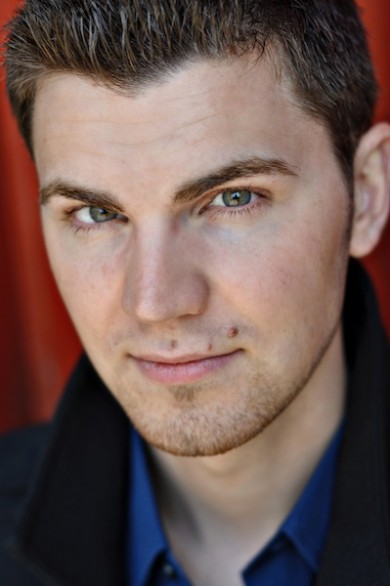Seraphic Fire leads off with world premiere, moving Schubert
Seraphic Fire’s season-opening program Wednesday night at St. Sophia Greek Orthodox Church in Miami was a straightforward affair, comprised primarily of music by 19th century German and Austrian composers. The one detour off the historical path was the world premiere of a work commissioned by the Miami-based choir.
But there is nothing straightforward or ordinary about the Grammy-nominated ensemble that is now entering its 14th season under founder and artistic director Patrick Dupre Quigley. One resists the temptation to use the word “heavenly” to describe the sound produced by a group named Seraphic Fire singing mostly religious music in a church, but no other adjective seems appropriate. Their sound is pure, glorious, and incandescent.
Wednesday’s concert did not draw a full house, but the remaining three performances of this program richly deserve to—not only to hear Seraphic Fire singing one of the most accessible and pleasing Schubert pieces in the choral repertoire but also to hear 29-year-old Jake Runestad’s taut and moving The Hope of Loving.
The Minnesota-based Runestad has had his work performed by Seraphic Fire before. When the composer told the Miami audience Wednesday that his new cantata was “all about love, which might seem trite,” that trap indeed seemed possible, with sections titled “Yield to Love” and “My Soul is a Candle.”
Runestad steered well clear of that pitfall. The Hope of Loving spans six sections with texts taken from Love Poems From God. The collection of mystical writing edited by Daniel Ladinsky covers well-trodden ground, but Runestad’s music does not.
It is hard to pigeonhole Runestad’s style. At times it is tonal and Romantic, infused with lyrical passages. Other sections suggest John Adams in the driving, rhythmic scherzos.
Yet Runestad writes with a light hand, opening the first section, “Yield To Love,” with a brief string adagio before the female voices enter to gorgeous effect.
Under the direction of Quigley, and backed by a string quintet from The Sebastians, Seraphic Fire gave rich advocacy to Runestad’s work. Solo turns by bass James Bass, tenor Patrick Muehleise and soprano Sarah Moyer were not only beautifully executed but rendered with moving restraint. Especially effective is the finale, which closes atmospherically with the chorus humming over a solo violin. Runestad’s sense of pace and balance makes The Hope of Loving a work that bears repeated hearings.
The rest of the program was just as rewarding. Tender, haunting vocal lines blended beautifully with the Sebastians’ deep strings in Beethoven’s Elegischer Gesang. The female members of the chorus showed off their vocal range in an expressive performance of Brahms’ Psalm 13. A second Brahms piece, O Heiland, reiss die Himmel auf, displayed the elegance of the male voices, which blended with the females for a joyous conclusion. The Sebasians acquitted themselves nicely in an assured, spirited reading of Handel’s Trio Sonata in G Minor.
Most of the audience probably came to hear the Schubert Mass in G, written when the composer was only 18 years old. A compact setting at just a little over 20 minutes, the mass offered the opportunity to experience the full range of Seraphic Fire’s skill: gleaming highs in the Kyrie, full-throated, soaring melodies in the Sanctus, easy-on-the-ears vibrato, and the deep, warm tone of the male members of the chorus. The young musicians of The Sebastians meshed seamlessly with the chorus, as if they were an extra voice, adding depth to the overall effect.
The soloists in the Schubert provided individual pleasures. Megan Chartrand has a pure, ringing soprano that soars cleanly from the middle before thinning out a bit at the very top. Daniel Moore has an easy but imposing baritone with plenty of heft. Steven Soph’s tenor is smooth and handsome.
The only questionable programming aspect of the evening was the decision to interpolate Josef Rheinberger’s mid-19th century Drei Geistliche Gesange with the Schubert mass. The Rheinberger work broke the momentum of the Schubert without adding much musically but had one welcome result: more time to bask in that heavenly Seraphic sound.
Seraphic Fire repeats the program 7:30 p.m. Friday at St. Philip’s Episcopal Church in Coral Gables; 8 p.m. Saturday at All Saints Episcopal Church in Fort Lauderdale; and 4 p.m. Sunday at All Souls Episcopal Church in Miami Beach. seraphicfire.org.
Posted in Performances
Leave a Comment
Thu Oct 15, 2015
at 1:29 pm
No Comments
